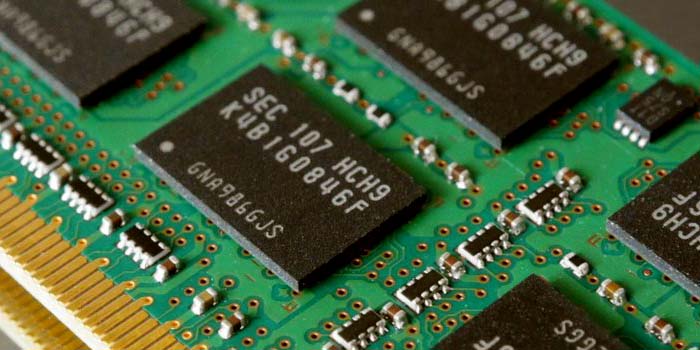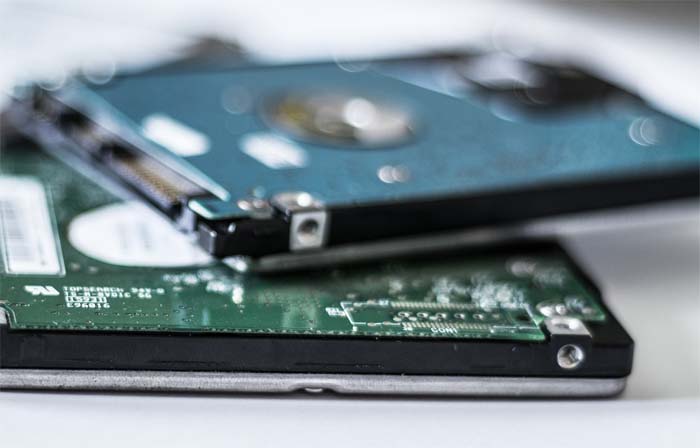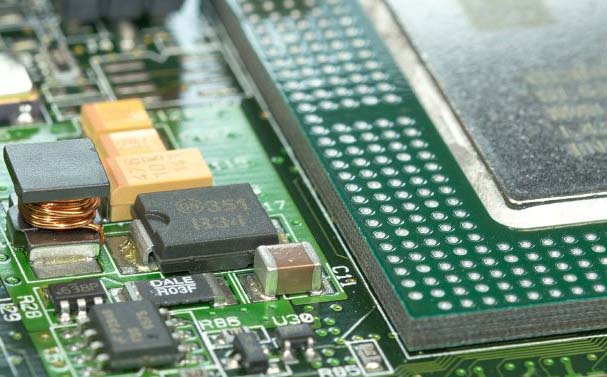Selecting the ideal laptop for daily use is a journey that requires navigating through a sea of options available in the market. It’s about finding that perfect match that not only meets but exceeds your expectations, offering a seamless blend of performance, convenience, and durability.
Whether you’re a student, a professional, or just someone who loves to stay connected, the right laptop can significantly enhance your digital experience. It’s important to weigh factors such as processing speed, storage capacity, battery life, and display quality to ensure that your new device aligns with your lifestyle.
Moreover, considering the design and portability will add to the comfort of using your laptop anywhere and anytime. So, take your time, do your research, and choose a laptop that will be your reliable partner in every task, making every click and every command a step towards productivity and enjoyment.
Choosing the CPU

When searching for a new laptop, understanding the importance of the processor is crucial. The Central Processing Unit (CPU) is the heart of the laptop, pumping digital life into all its functions. It’s the cornerstone of performance, and selecting the optimal CPU is paramount, tailored to the laptop’s intended use. For tasks that are not processor-intensive, like office work or web editing, an Intel Core i3 processor will do the job, offering a balance of efficiency and cost-effectiveness.
However, for the digital artist or multimedia enthusiast, a laptop with an Intel Core i5 processor is the sweet spot, providing a robust platform for photo and video editing without breaking the bank. For the power users and gamers who demand top-tier performance, the Intel Core i7 processor stands as the champion, delivering lightning-fast speeds and unparalleled processing power, making it a staple in gaming laptops and high-end video editing machines.
In essence, the choice of processor is a balancing act between budget and performance needs. It’s about finding that perfect harmony where the laptop doesn’t just meet expectations but exceeds them, providing a seamless experience whether you are working with numbers, creating content, or conquering virtual worlds. So, when you’re standing at the crossroads of innovation and practicality, let your laptop’s purpose guide you to the CPU that will not only serve your current needs but also stand the test of time in this ever-evolving digital age.
Recommended CPU for laptops in 2024
- In 2024, the Apple M3 Max leads the pack with its cutting-edge 3 nm technology, offering unmatched energy efficiency and processing power for the most demanding tasks.
- Intel’s Core i9 14900HX shines with its hybrid architecture, balancing high-performance cores with energy efficiency, ideal for intensive computing.
- AMD’s Ryzen 9 7945HX3D, equipped with 3D V-Cache technology, provides exceptional gaming performance, making it a top choice for gamers.
- The Apple M3 Pro is a great all-rounder, handling everyday tasks and demanding applications with ease, thanks to its balanced performance.
- For budget-conscious users, Intel’s Arc A750 offers a cost-effective solution without sacrificing computing quality.
- Qualcomm’s Snapdragon X Elite series focuses on connectivity and AI, perfect for those needing a processor that keeps up with a mobile lifestyle.
- Future-proof options like the RTX 4060 Ti and RX 7700 XT promise affordability and advanced technology, catering to a wide range of users.
- When choosing a CPU, consider the synergy with other system components, thermal design power, and cache size for the best performance and efficiency.
Memory (RAM) – The bigger, the better

When venturing into the market for a new laptop, understanding the significance of Random Access Memory (RAM) is crucial. RAM serves as the cornerstone of your laptop’s processing power, working in tandem with the CPU to handle information swiftly and efficiently.
The more RAM your laptop possesses, the more adept it becomes at juggling multiple tasks simultaneously without a hitch. For the average user, 8 GB of RAM is a solid starting point, ensuring smooth operation for everyday tasks. However, for those who demand more from their devices – be it for advanced gaming, intricate graphic design, or intensive data analysis – upgrading to 16 GB of RAM can provide a substantial performance boost.
It’s an investment that can dramatically enhance your computing experience, allowing for faster load times, better multitasking capabilities, and an overall more responsive system. So, if your budget has some wiggle room, opting for that extra RAM could be a wise decision that pays dividends in efficiency and satisfaction. Remember, in the world of technology, a little extra memory can go a long way in keeping your digital life running smoothly.
Storage Device – What should I choose?

In the evolving landscape of laptop storage solutions, the traditional Hard Disk Drive (HDD) is gradually becoming obsolete, giving way to the more advanced Solid State Drive (SSD). The transition from HDD to SSD marks a significant leap in storage technology, primarily due to the stark differences in their operational mechanisms and data handling efficiencies.
Unlike HDDs, which rely on mechanical parts and magnetic storage, SSDs utilize flash memory to deliver remarkably faster data access speeds. This speed is not just a marginal improvement but a transformative change that enhances every aspect of computing – from boot times to file transfers and application performance.
The SSD’s superiority in speed is complemented by its durability, as it lacks moving parts, making it more resistant to physical shock and wear over time. Additionally, SSDs operate silently and consume less power, which contributes to longer battery life in laptops. The affordability of SSDs has seen a favorable trend, making them an increasingly popular choice among consumers. This cost-effectiveness, combined with their performance benefits, has solidified SSDs’ dominance in the market.
As a result, the once-ubiquitous HDD is now a less common sight in modern laptops, as users overwhelmingly prefer the robustness, efficiency, and speed of SSDs. The shift towards SSDs is a testament to the relentless pursuit of innovation in computer technology, ensuring that storage solutions not only keep pace with but also enhance the user experience. The future of laptop storage undoubtedly belongs to SSDs, as they continue to evolve and set new benchmarks in the realm of digital data management.
Video card

The graphics card, an essential component of a laptop, significantly influences its performance and suitability for specific tasks. Integrated graphics cards, which are built into the motherboard and share memory with the processor, are a cost-effective solution for everyday activities such as web browsing and office work.
On the other hand, discrete or dedicated graphics cards have their own memory and processing power, providing superior performance for more demanding applications. These are ideal for creative tasks like video and photo editing, where rendering speed and detail are paramount.
For gaming enthusiasts, a high-end dedicated graphics card is a must, working in tandem with a robust processor and ample RAM, preferably 16GB or more, to deliver an immersive and fluid gaming experience. The choice between integrated and dedicated graphics cards ultimately hinges on the user’s specific needs and the laptop’s intended use.
Recommended Video Cards for Gaming Laptops in 2024
- The RTX 4090 leads as the powerhouse for gaming laptops, offering top-tier performance for the most graphically demanding games.
- RTX 4080 Super stands out for its excellent balance of cost and performance, suitable for high-end gaming experiences.
- Mid-range options like the RTX 4070 Ti Super and RTX 4070 Ti offer great performance for most modern games.
- AMD’s RX 7900 series, including the RX 7900 XTX and RX 7900 XT, rivals Nvidia with impressive performance.
- The RX 7900 GRE is a budget-friendly choice for gamers who don’t want to compromise on quality.
- Future-proof GPUs such as the RTX 4060 Ti and RX 7700 XT provide a blend of affordability and cutting-edge technology.
- Intel’s Arc A750 emerges as a budget-friendly GPU that still delivers solid gaming performance.
- When choosing a video card, consider how it will work with your laptop’s CPU, RAM, and storage for the best gaming experience.
Guide to find the best laptop
Now that you know what to consider when buying a laptop, let’s see how you can choose the best laptop for you. Follow these steps to find a laptop.
- Identify Your Needs: Consider what tasks you’ll be using your laptop for, whether it’s for work, gaming, or general use.
- Set a Budget: Decide how much you’re willing to spend, as this will narrow down your options significantly.
- Research: Look up the latest models and check out reviews from trusted sources to find the best laptops for your needs.
- Check Specifications: Pay attention to the processor, RAM, storage, and graphics card – these will determine the performance of your laptop.
- Consider Portability: If you travel often or need to carry your laptop around, look for lighter models with longer battery life.
- Read User Reviews: See what other buyers have to say about the laptops you’re considering. User experiences can provide valuable insights.
- Look for Deals: Keep an eye out for sales, discounts, and bundle offers on e-commerce sites like Amazon to get the best value for your money.
- After-Sales Service: Consider the warranty and customer service provided by the manufacturer, as this can be crucial if you encounter any issues with your laptop.

